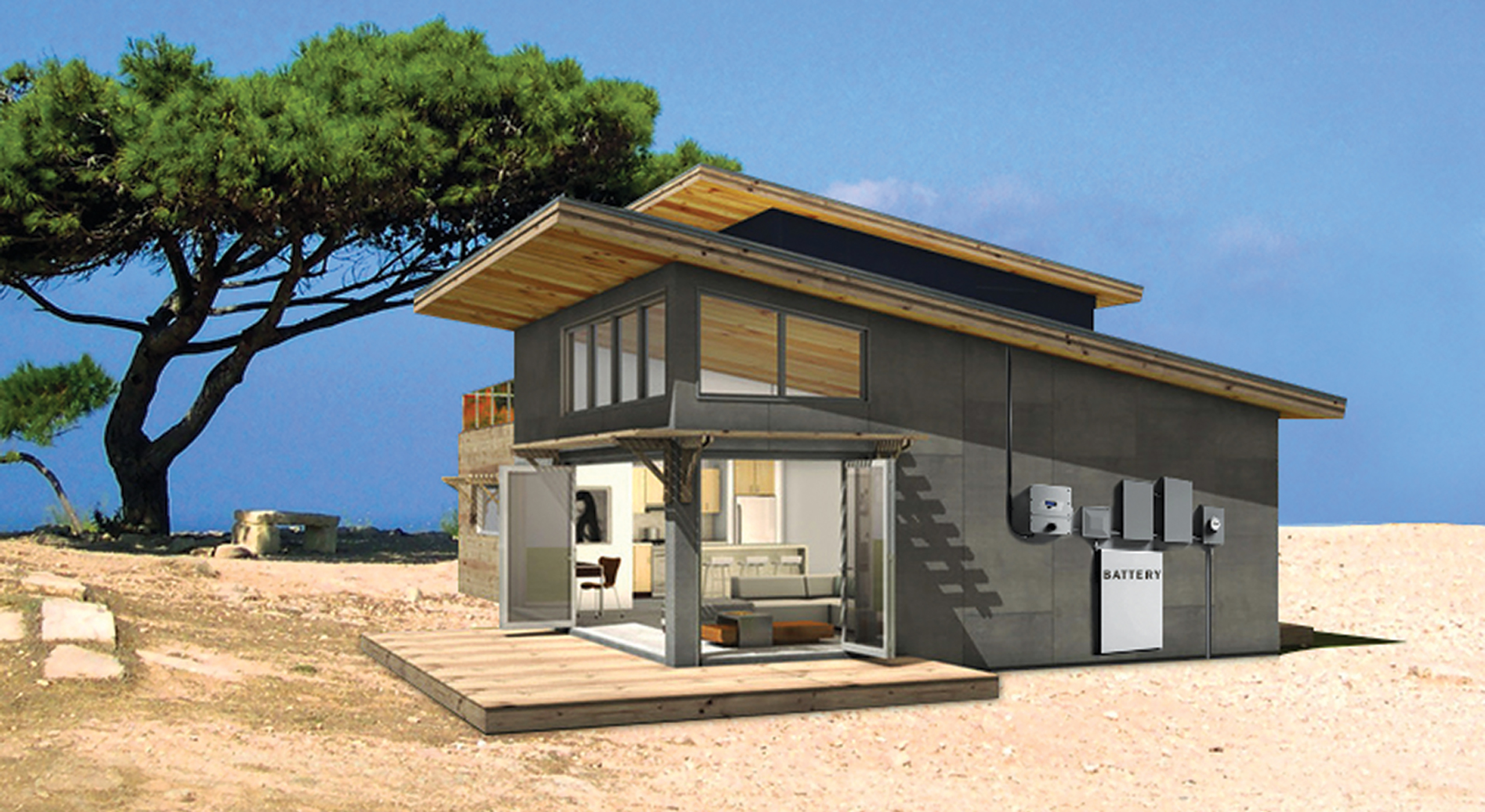
Startup targets zero-energy homes
W. P. Carey alums use lessons learned in the classroom to help chart their vision of the future of homebuilding, one built around neighborhoods and communities replete with zero-energy homes.
W. P. Carey alums are using lessons learned in a W. P. Carey Master of Real Estate Development (MRED) classroom to help chart their vision of the future of homebuilding, one built around neighborhoods and communities replete with zero-energy homes.
Mike VanSteenkiste (MRED '07) and Philip Beere (MRED '07) have teamed up to launch a project that will offer net-zero home plans, powered by batteries and solar panels. These plans will be made available to small and large builders, and consumers across the country and beyond.
Think of it as an Airbnb for zero-energy house plans, they say. Click on the project's website, explore the available floor plans, and you are well on your way. Welcome to the future of zero-energy homes, easily made for the consumer. Welcome to ZEROHOUZZ.
VanSteenkiste and Beere say the timing of the launch, scheduled for Earth Day 2018, could not be better in light of current market conditions.
"Consumer demand is growing, energy costs are rising, and zero-energy homes cost less to build due to project competitiveness," says VanSteenkiste, who will be managing the project's e-commerce. "Who wouldn't want a zero-energy house, if it's that easy? We are making it easy."
The website will offer plans ranging from 1,800 to 3,300 square feet, costing from $1,800 to $2,800 per plan. All would include rooftop solar panels and battery storage.
"It's a fraction of what it would cost to have an architect start from ground zero," says Beere, who has worked on several green energy housing projects. "The real vision and passion here is to transform housing not only in the U.S. but across the world. That's what this is all about."
The partnership between the two alumni has its roots in a second-floor W. P. Carey classroom, where VanSteenkiste says the two struck up a relationship because of a mutual interest in sports and fitness.
Time spent in the program, VanSteenkiste says, taught him "the intricacies of real estate deals. That deal structure is sometimes more important than anything else." Beere says one of the things that most affected him were community architects invited to teach in the classroom who focused on environmentally sensitive and energy-saving projects.
The two kept in touch on and off following the nine-month MRED program, a transdisciplinary partnership between W. P. Carey and three other schools at ASU. After graduation, VanSteenkiste says he became involved in a number of online marketing campaigns for different products and services. Beere worked on the green and energy-efficient end of housing, including serving as a consultant for an award-winning project by Phoenix-based Mandalay Homes in Arizona.
Both alums figured the collaboration would be natural, tapping into VanSteenkiste's online marketing prowess and Beere's green touch. "It was just a matter of what and when it would happen," Beere says.
The timing was ripe to roll out the online platform because net-zero construction is economically feasible due to product innovations and market competition. Not to mention, the goal in areas such as California and Oregon are to make zero-energy homes policy by 2020. Beere says this seems to be the trend other states soon will follow.
"It's no longer an option; this is the wave of the future," VanSteenkiste says. "We see policy in states and municipalities around the country committing to zero-energy homes."
Latest news
- This business school is launching 4 new online degrees. It's part of a growing trend to serve working students
W. P.
- Flexible online master's of accountancy allows Natalie Goudarzian to continue career while leveling up
Programs like the Online Master of Accountancy and Data Analytics (Online MACC) from W. P.
- Tomato growers say looming duty on imports could upend business, raise prices
A W. P.